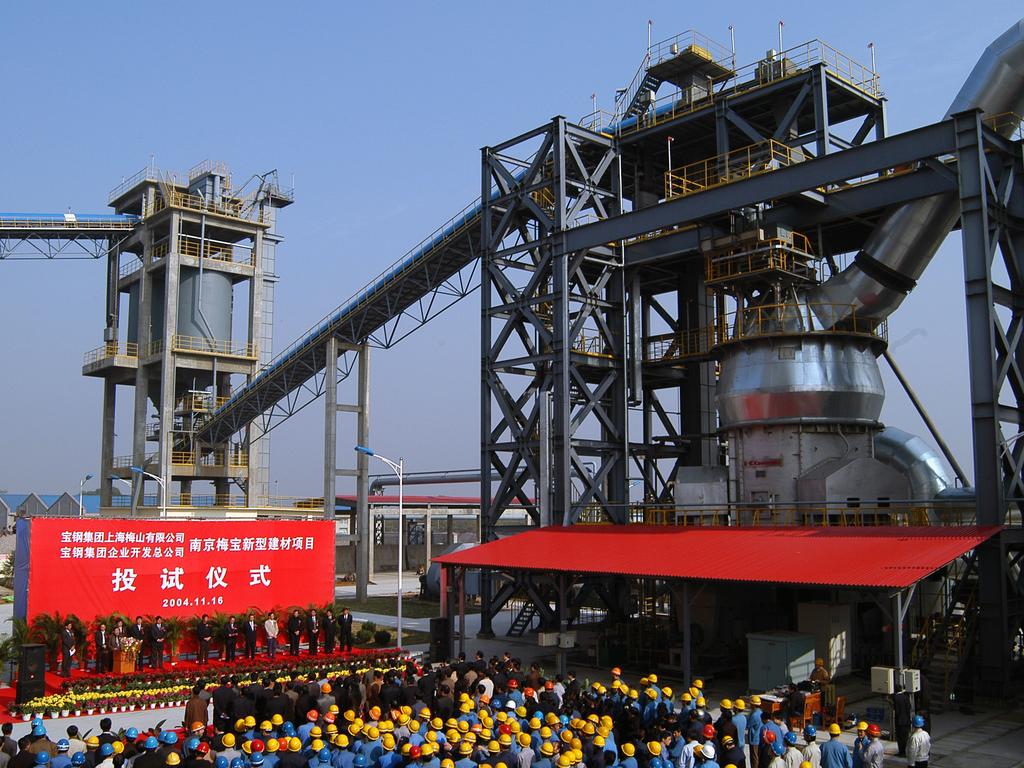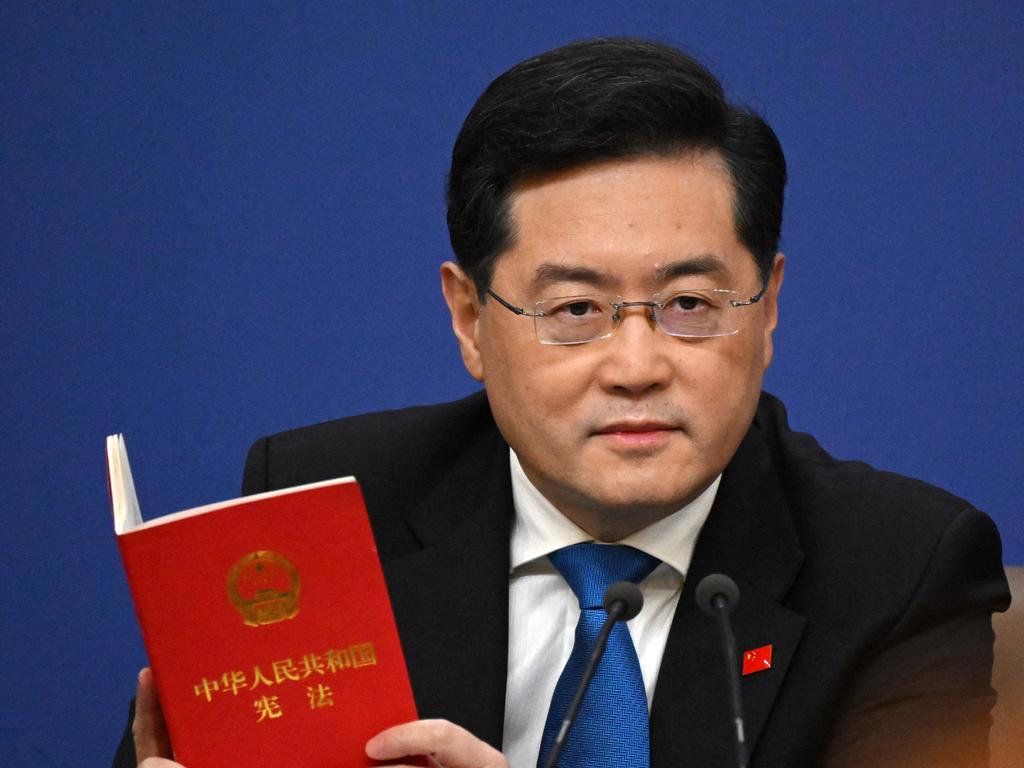
This is what has just happened in China, with its comparatively young and sophisticated Foreign Minister Qin Gang, who was elevated rapidly by Xi Jinping himself.
He has suddenly become a non-person, with no explanation given. He has been replaced, for now, by his rather grim predecessor, Wang Yi, the top international official of the Chinese Communist Party, which always takes precedence over the government in China.
While a few historic news releases with Qin’s name were reinstated late last week on the website of the Foreign Ministry – where confusion seems to reign, for now – Qin’s fate remains a mystery.
A visit by him to Canberra was at the planning stage, to prepare for Anthony Albanese’s long-mooted travel to Beijing later this year.
This still unfolding drama – with its swirling rumours of Qin having a secret, glamorous TV-host mistress and love-child, and of a mooted resurgence of court-politics, of factional opposition to China’s paramount leader Xi Jinping – underlines the essential volatility of the single-party state.
Canberra’s worthy goal is to “stabilise” relations with the People’s Republic of China.
This remains challenging, when power in Beijing has become so personalised and centralised in Xi’s hands, and when the PRC’s international strategy has leaned towards the transactional, opportunistic and performative, despite its enduring, overriding goal of making the world safe for the party.

The fate of Qin, who flew too close to the sun and has now fallen so dramatically, personifies this persisting PRC instability, for all its denigration of democracies – Xi insisting “the East is rising, the West declining.”
Despite being miscast during his recent spell as ambassador to Washington as a “wolf warrior”, Qin appeared to me approachable and articulate. I came to know him a little during my first spell as The Australian’s China correspondent, when he was a government spokesman, already a senior and trusted position.
He is urbane and possesses, unusually, a sense of humour. He spoke warmly about this newspaper at a party to mark the tenth anniversary of The Australian’s bureau in Beijing.
Noting that China could learn from Australia, Qin recalled how, while accompanying then Premier Wen Jiabao to Canberra, he had noticed the Prime Minister John Howard wearing a spruce Melbourne Commonwealth Games track suit when they went jogging together. So he persuaded Wen to don an eye-catching Beijing Olympic Games tracksuit at each of his jogs during an ensuing tour of European capitals.
Qin told me that during a posting to London he had become an Arsenal soccer fan – like me – leading to joint viewing at a late-night Beijing bar. Sadly, he seems unlikely to be in a position to watch the team’s triumphs ahead.
A friend overheard Qin, during the party congress in Beijing last October, quietly instructing foreign ministry staff that “we should understand what international media want, and help provide it.”

His fall is highly consequential, despite the “nothing to see here, move on” public face presented by China Inc. It underlines both the brutality and the opacity of China’s elite politics, which lie at the heart of everything in the People’s Republic, including economic strategy.
Qin was only 48 – young in the PRC system – when he became China’s protocol chief, drawing him especially close to Xi personally; he played a key role in supervising Xi’s frequent travels.
After a spell as vice minister for Foreign Affairs he was appointed to China’s top overseas job – ambassador to Washington.
When Qin returned to Beijing early this year, Xi elevated him further, above myriad older candidates, to a striking triptych of titles: Foreign Minister, State Councillor, and member of the party’s Central Committee. He was being positioned, 13 years younger, as the next-generation successor to Wang Yi.
Wang would have retired before now if Xi, aged 70, had not removed the former age limits in order to ensure his own perpetual hold on power, shunning succession planning.
Qin’s rivals will be savouring the hour, while Xi’s all-knowing, all-powerful persona suffers a modest setback with his global-affairs pick suddenly proving – for whatever mysterious reason – a poor one.

If Qin’s fatal flaw is to have had a mistress – he is married to Lin Yan, a visiting professor at three universities, and they have a son – then that’s a new, high bar in a patriarchal culture that has long tolerated such relationships. But it’s likely that something further weighed the scales against him, which in Xi’s New Era China usually means a thought, remark or action interpreted as disloyal to Xi personally.
At every level in China, Xi loyalty now supersedes pure professionalism, which means that all the blame as well as all the glory goes to Xi. And the strange story of Qin Gang reinforces the truth of the saying that accompanying an emperor is like accompanying a tiger.
Rowan Callick is an industry fellow at Griffith University’s Asia Institute.








Imagine if Penny Wong disappeared from public life for a month, the federal government announced her removal as Foreign Minister, official websites wiped references to her, and her whereabouts remained unknown, yet otherwise Canberra carried on as normal.